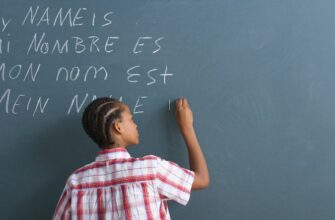Have you ever thought about why some students learn languages more quickly as compared to others? No doubt, the reason behind their success is the virtue of their sheer hard work, persistence, and determination, etc.
Apart from that, there are some crucial factors also that influence their success largely. Do you know what are those factors which affect second language learning?
Well, today’s topic is around this only, we will discuss the factors affecting second language learning.
Now you all must be thinking, what’s the need of knowing about those factors. So, let me clear this to….! Analysis about factors will help you in recognizing the potential areas of difficulty in language learning. It’s better to have an idea of such things so that you can.
- Factors Affecting Second Language Learning
- 1.Intelligence
- 2. Language Learning Aptitude
- 3. Learning Style
- 4. Personality
- 5. Age
- 6. Social Setting/ Environment
- 7. Attitude
- 8. Motivation in the Classroom
- 9. Spaced Repetition Systems (SRSs)
- 10. Correct Instruction And Complete Attention:
- 11.Access to native speakers:
- Wrap up:
Factors Affecting Second Language Learning
1.Intelligence
Second Language Acquisition researcher’s links up intelligence of language learner with their second language learning ability.
According to the learners who smartly perform IQ tasks have a greater success rate for learning the second language.
Even the student from the weedy academic background can also be master in the second language. Only they need is the right opportunity.
These intelligence tests also measure learners’ metalinguistic capabilities other than communicative skills.
2. Language Learning Aptitude
Well, I have seen many cases, where in spite of having good academic background learners face difficulty to learn foreign languages. That’s the reason why learners ‘Language Learning Aptitude’ is associated with the second language learning skills of learners. Not completely on the performance results in some IQ tests.
Test like MLAT (Modern Language Aptitude Test) mainly focuses on measuring the ability of learners to recognize and remembering the speech of their target language. So, it’s better to correlate language learning with MLAT than traditional IQ tests.
3. Learning Style
Yes, it’s very true that learning style is one of the biggest factors that affect second language learning. Usually learning styles are classified in perceptual, visual o auditory. Apart from this learning style can also be distinguished between field-dependent and field-independent learners.
Field-independent learning style is a tendency to extract facts from the surrounding context.

Whereas, field-dependent learning style, is a relative inability to separate detail from other information surrounding it.
For Example, Field-independent learners depends very less on tutor or others for support.
Activities like extensive writing and reading that learners can easily carry out on their own are quite beneficial for field-independent learners.
4. Personality
From research, it is found that individuals having extrovert personalities are much faster in learning the second language. anxious or Introverted learners show slower progress mainly in oral skills development. They hastate to take advantage of opportunities to speak. Whereas, outwards student doesn’t worry about the inevitability of making slipups. So, they know very well about their level of language learning and the areas in which they need to work.
5. Age
The researcher has also concluded that Second language acquisition is highly influenced by learner’s age. Teenagers who all are already having solid literacy skill in their respective languages seems to grab new languages more efficiently. Older age learners can also be very successful. but they need to struggle hard for achieving fluent pronunciation and intonation equivalent to native-speakers.
Young age language learners make use of essential capacities and complex strategies for achieving their goal of language learners. Whereas, older learners use general learning capabilities meanwhile learning the language. This is not that effective for learning all aspects of language.
6. Social Setting/ Environment
Several social/environment factors such as the existence of non-native/native speakers, gender division, numbers of language transition, etc. play a very import role in second language learning.
The social setting is also divided as macro-social and micro-social. The macro social is related directly to the learner’s classroom setting environment. It is the place where the second language is comprehended, negotiated or communicated.
On the other hand, Macro-social relates to cultural, ethnic perspective and broader political.
Overall, educational and social settings put a bigger influence on the successful learning of the second language.
If any new learner doesn’t find a valued partner for conversation then his/her language acquisition will get compromised. This problem commonly rendered by minority and immigrant groups.
7. Attitude
It is found that language learners’ attitude towards their targeted language & language community is the biggest factor in language learning. It plays a big role in shaping learner’s inclination for learning their target language. This will indirectly help you to determine the success rate of learning the second language.
8. Motivation in the Classroom

Motivation is always important to get success in any field. If you have a clear career idea for language learning. Then it will ultimately help you to stay motivated always.
If the learner doesn’t set any motive behind learning languages then it will inevitably drop interest in their language learning. From studies, it is found that if a learner takes interest in whatever lessons taught to them. Ask a question regarding that and equally take part in discussion etc. Such learner learns languages more quickly as compared to silent learners.
9. Spaced Repetition Systems (SRSs)
SRSs Spaced Repetition Systems are the quickest way to learn anything and remember it for a longer time.
The idea is very simple. You just need to prepare a flashcard having questions and answers side by side. It takes very little time to take a recap of the things you have learned until now.
Well, SRSs handle this scheduling process for optimizing thousands of flashcards at a time. You can also include video clips, sound files, pictures on your flashcards.
There are many language learning apps available that offer this Spaced Repetition Systems feature in their app. Some examples of such apps are Fluentu, Memrise, And Duolingo. So, implement spaced repetition systems for faster language learning.
10. Correct Instruction And Complete Attention:
Yes, it’s very true that the teaching style of some teachers put a great effect on inappropriate learning experiences. Whether you are learning the language in a classroom or from the online app the way of instruction influences faster-learning progress.
If you are taking online language learning classes then keep these points in mind:
Before booking for the sessions:
- Interview as many teachers as you want until you find satisfaction with the one. For checking out this, it’s better to book 30 minutes trial sessions with each teacher.
- Try a variety of teachers: There are different age group male and female teachers available in online language learning apps. So by trying them, you will get wide exposure to all shades of languages.
Meanwhile the sessions:
- Stay focused on your target language.
- Keep variation in your lesson theme. Avoid talking about the same things repeatedly. Push yourself about discussing and playing a role in new themes or scenarios.
- Record and review the session audio:
Take the permission of doing so. Give much attention to pronunciation and vocabulary of your target language.
- If you find any new words then don’t forget to add them to your SRS.
- Try avoiding videos in 50% of your language sessions that your taking. As it makes harder for you to become a much better speaker.
11.Access to native speakers:
Whenever you get a chance to interact with native speaker take advantage of that. By doing so you can speed up your language learning task. Native speakers are actually working as a linguistic model for you and they also give proper feedback.
Second language learners who avoid extensive interaction with native speakers make slower progress. Mainly in the oral section of language learning acquisition.

Wrap up:
Consider all the aforementioned points regarding factors influencing language learning very carefully. As this will help you lot in grabbing any new language at a faster and longer-lasting way.








